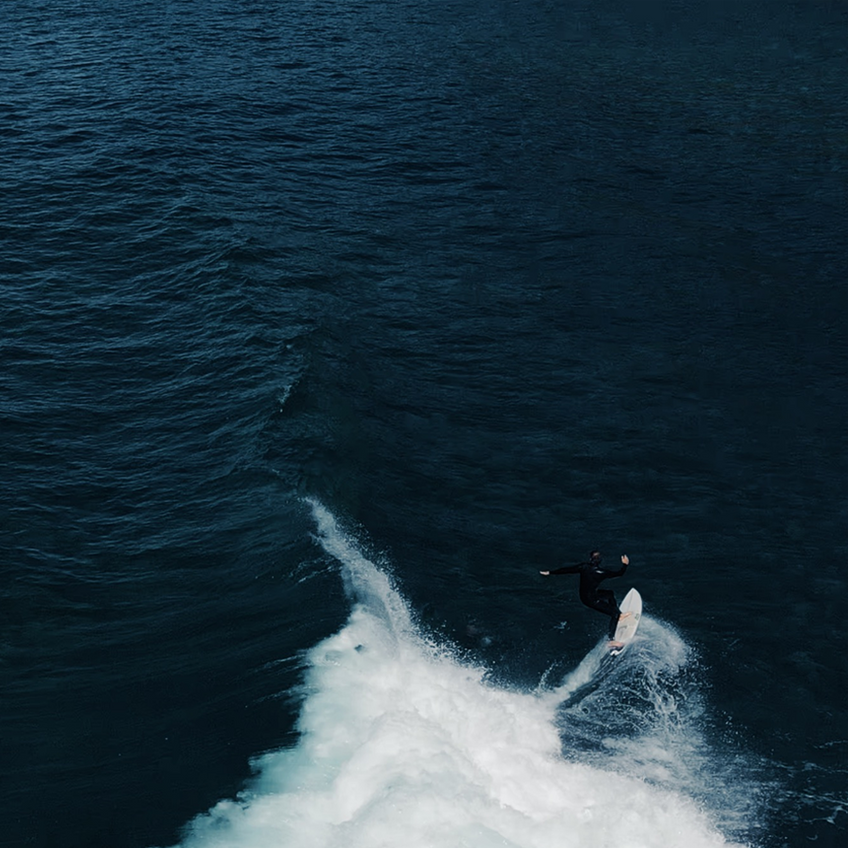For the majority of human history it was assumed that the vast ocean was invincible. Civilisations great and small all saw the sea as a dumping ground; one which also happened to be a bountiful source of food and other precious natural resources. Only in the last few decades have scientists and activists opened our eyes to the damage that has been inflicted upon our beloved ocean, giving us the knowledge required to take steps to undo that damage and restore the ocean to full health.
Ocean Day 2023 is all about bringing that knowledge to the fore, so that everyone from budding ocean activists to sustainable clothing companies like ours are compelled to take action. Being a sustainable fashion brand that from day 1 has been dedicated to saving the ocean, we have a few thoughts on how you can go about doing your bit to protect what makes up two thirds of our planet’s surface: the ocean.

1. Lobby, Lobby, & Lobby Some More
Whether it’s the Oder River in Germany, drinking water in France, or surf beaches in the UK, Europe’s natural waterways and coastline are being put under increasing pressure by multiple sources of pollution. Water companies dump sewage in them. Intensive farming leads to harmful pesticides and synthetic chemicals leaching into them. But what can be done about it?
One of the most effective ways to put pressure on governments and companies to act is to lobby at a local and national level. Write letters, post on social media, call your local representatives; do whatever you can to further the cause of clean rivers and oceans. Even though it may seem like you’re not having an impact, when you join forces with other ocean lovers, to have your voices heard, you might find that positive change happens faster than expected.
2. Eat Less Fish
Lots is often made of the need for humans to reduce or eliminate their consumption of meat, and while this is undoubtedly true, what gets talked about less is our need to go easy on eating fish and shellfish.
Large commercial fishing operations often use what’s known as bottom trawling, a practice that scours the sea bed to catch fish and whatever other sea life might get entangled in its vast weighted nets. Other environmentally damaging fishing practices include fish farming, which has proven not only to be unnecessarily cruel to the animals it processes, but also leads to the spread of infectious diseases and parasites, which are often passed on to wild fish stocks.
While organisations like the UN have been doing their part to try and protect the biodiversity of our oceans, one of the best ways to prevent overfishing, fish farming, and the proliferation of bottom trawling is to stop eating fish.

3. Wear Sustainable Clothes & Eco-Friendly Accessories
By now it is a well known fact that the fashion industry accounts for up to 20% of all industrial water pollution worldwide. It is also the second biggest CO2 emitter, with only the fossil fuel industry having a larger carbon footprint.
This means that it’s more important than ever to ensure that you only take sustainable bikinis and eco-friendly swimsuits to the beach, and that you add sustainable t-shirts, eco-friendly underwear and ethical loungewear to your wardrobe.

Showing support for small, family-run, sustainable clothing brands like TWOTHIRDS is a great way of ensuring that your ethical clothes are made solely from low impact materials, so that new eco-friendly trousers or fair trade jumpsuits are guaranteed to be crafted from organic, botanic, recycled or deadstock fabrics. Buying slow fashion is also an act of defiance - showing fast fashion giants that their unethical and unsustainable business models are on the way out.
4. Support Ocean Conservationists & Scientists
Because there are many private and state interests that benefit from the destruction of ocean habitats, there is often a lot of deliberately fabricated ill-will directed towards those people who make it their life’s work to protect our oceans.
As a result, ocean conservation groups and climate scientists need all the support they can get. You can provide this financially or simply by spreading awareness amongst your friends and family about who the good guys are. Some of the organisations we’re following at the moment include:

5. Vote Ocean-Friendly
While you are certainly doing good for the ocean by switching to slow fashion alternatives like sustainable activewear, sustainable jackets or eco-friendly trousers, there’s also another very quick and effective way to help safeguard the ocean.
This is by voting for politicians and political parties who are proven advocates for environmental issues that impact our ocean. Nothing makes politicians and the establishment sit up and take note more than voters swinging behind a certain cause.
6. Reject Single-Use Plastics
Another immediate positive impact you can make is to change your food shopping routine. Anyone who recycles at home will know that the amount of single-use plastics which are thrown away by the average household continues to far exceed what’s acceptable.

The best way to stem this tide of plastic is to stop shopping at supermarkets and instead opt for local greengrocers and market stalls, which do not coat their products in unnecessary plastic packaging. If you still hanker for convenience and speed you could even use an online shopping platform, with many now existing that do everything possible to deliver products without a hint of single-use plastic.
Of course, the other way to ensure that waste plastic stays out of the ocean is to buy ethical clothes made from recycled materials. Many of our sustainable bikinis, eco-friendly swimsuits and fair trade boardshorts are made from fabrics like SEAQUAL® and ECONYL®, both of which feature a certain percentage of recycled ocean plastic.









